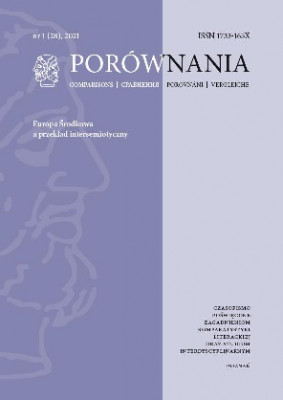From Inter to Trans : Dark Sources of Erna Rosenstein’s Art
The article examines the operability of the concept of intersemiotic translation in Emma Rosenstein’s post-Holocaust poetry. Both the semiotic origin of the concept as well as its susceptibility to modification and re-definition were taken into account. Ultimately, based on the theory of Bracha L. Ettinger’s matrix, it was proposed to replace the intersemiotic translation with the categories of transcrip- tum. it turned out to be a concept as if designed from the bottom up by the art and poetry of Rosenstein, the Holocaust survivors, reflecting well the interconnections and interferences. The analysis used poems and ink drawings included in the book of poetry All Paths from 1978, and other drawings published in the monograph by Dorota Jarecka and Barbara Piwowarska entitled Erna Rosenstein. I Can Repeat Only Unconsciously. (Warsaw: Foundation of the Foksal Gallery 2014). The analysis revealed that the source of many of the artist’s works is the remembered image of the death of her parents murdered by a “szmalcownik” in 1942. It turned out that the artist was looking for an opportunity to hide it and show it at the same time, therefore on a philosophical level she reaches for solutions resembling the aforementioned concept by Ettinger and on a formal level she creates anamorphoses.
| Article Title | Type | Size |
|---|---|---|
| 05 Tomczok | [pdf] | [240 KB] |
